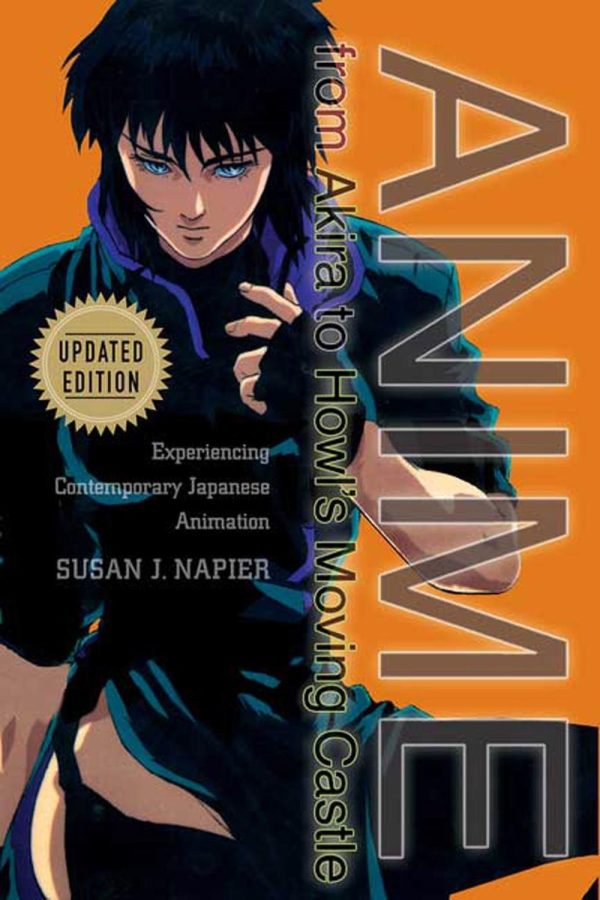State representatives object to anime textbook that depicts sexual assault
State representatives Reggie Stoltzfus (R-Paris Twp.) and Don Jones (R-Freeport) sent a letter to Kent State President Todd Diacon last week demanding the university immediately pull a textbook they said contains “highly inappropriate” pornographic material from use in a composition class about anime, or Japanese-style animated films and shows.
The textbook, Anime from Akira to Howl’s Moving Castle: Experiencing Contemporary Japanese Animation by Susan J. Napier, contains a chapter that describes and critiques a problematic genre of sexually explicit anime where women are often victims of horrific sexual violence. At least one still from the films discussed appears in the section.
The textbook is required reading in College Writing I: Social Issues Through Anime, a section offered through the Stark campus and delivered remotely during the coronavirus pandemic.
In an email exchange obtained by TV2, a 17-year-old high school student enrolled in the course through the College Credit Plus (CCP) program told the professor the assigned reading went against his “moral obligations” and made him “very very uncomfortable.” The student then asked her to provide an alternative textbook and assignment.
The instructor, Brenda Stephens, replied that there is no alternative textbook. “What about the text goes against your personal morals?” she asked. “It sounds as if you’ve greatly misunderstood the text.”
The student’s parent approached Stoltzfus, who teamed up with Jones, the House Primary and Secondary Education Committee chairman, to pen a letter stating that public institutions receiving state taxpayer dollars should never require students, especially those who are not yet legal adults, to read material that “glorifies” sexual violence.
Stoltzfus later implied in an interview that if Kent State is unwilling to take action to pull the book and review its policies, it could jeopardize its chance to receive funding in years to come. “If they don’t want to take this off their shelf then, you know, they’re going to force my hand as a representative,” Stoltzfus said.
“I’ve told (university officials), ‘I’m going to purchase books for every member of the General Assembly and we’re gonna look at this book,’” he said. “They’re going to decide, you know, is this institution going to get $150 million of state taxpayer dollars every year?”
In response, Kent State issued a statement that said the goal of the themed College Writing courses is to teach students writing skills while engaging them in conversations about subjects they find interesting. This class in particular seeks to explore social issues such as violence against women through the lens of anime.
Students enrolled in the CCP program are free to choose a section that interests them and must sign a waiver with their legal guardian that says they will not demand modifications based on course materials that include mature adult themes. (Stoltzfus told the Record-Courier he did not know if the student intentionally selected the anime course.)
The university’s statement welcomed students to reach out to the Student Ombuds office to resolve any complaints they have about course content.
Jennifer Cunningham, the writing program coordinator, declined to answer questions about who designed the course, how the syllabus and materials were approved, how long the course has been offered and how the department has handled similar situations in the past.
English department chair Babacar M’Baye, Mandy Munro-Stasiuk, interim dean of the College of Arts & Sciences and Robert Sturr, interim assistant dean for Academic Affairs at the Stark campus, also declined comment.
Bryce Bassitt, treasurer for the Kent State Anime Society, said he does not believe it is fair to say the textbook glorifies sexual assault.
“Maybe the original works themselves were doing that,” he said, but the textbook takes an analytical, academic approach to the pornographic anime. “It is saying, ‘This is how (sex) is portrayed in these pieces of work,’ not ‘This is how it should be.’”
Bassitt, who is a junior Teaching English as a Second Language (TESL) major, said he’s proud of university officials for “sticking to their guns” and reminding students that adult-level classes come with potential exposure to adult content.
While he acknowledged studying and discussing sexually explicit anime in class would have made him uncomfortable too, Bassitt said discomfort alone is not a good enough reason to avoid learning about a topic.
“I think it’s important to just talk about everything, especially difficult subjects, because if you don’t talk about these things, you don’t learn about these things,” he said. “You’ll get ‘the facts’ in your head, and you’ll probably get them wrong and have a different view of how (reality) actually is.”
Every student will have to deal with topics that make them uncomfortable eventually, Bassitt said, so it’s beneficial to be introduced to them in a controlled environment like a classroom with the oversight of an instructor.
“Trying to hide from everything that might be offensive—it’s just a fool’s errand.”
Lyndsey Brennan is a reporter. Contact her at [email protected]
SUPPORT STUDENT MEDIA
Hi, I’m Lauren Sasala, a senior journalism student from Toledo. I’m also the editor in chief of The Kent Stater and KentWired this semester. My staff and I are committed to bringing you the most important news about Kent State and the Kent community. We are full-time students and hard-working journalists. While we get support from the student media fee and earned revenue such as advertising, both of those continue to decline. Your generous gift of any amount will help enhance our student experience as we grow into working professionals. Please go here to donate.



